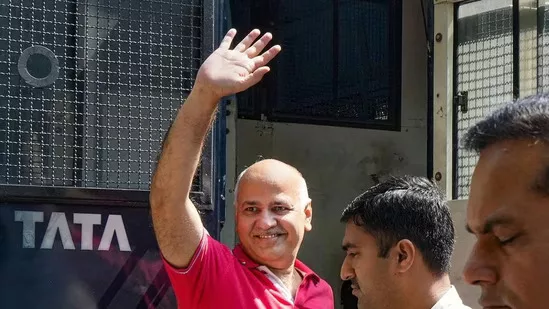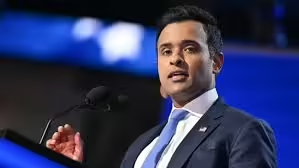
Manish Sisodia Granted Bail in Delhi Excise Policy Case: A Detailed Analysis
Former Delhi Deputy Chief Minister Manish Sisodia has recently been granted bail by the Supreme Court of India in the high-profile Delhi Excise Policy case. This development marks a significant moment in a case that has been at the center of political and legal debates in the country. Sisodia’s release on bail underscores several key legal principles, including the presumption of innocence, the right to a speedy trial, and the importance of judicial discretion in granting bail.
Background of the Case
The Delhi Excise Policy case pertains to allegations of irregularities in the formulation and implementation of the Delhi government’s excise policy, which was introduced under Manish Sisodia’s tenure as the Deputy Chief Minister. The policy, which aimed at reforming the liquor trade in the capital, has been accused of favoritism and corruption. The Central Bureau of Investigation (CBI) and the Enforcement Directorate (ED) have been probing the case, leading to multiple arrests and charges.
The crux of the allegations against Sisodia is that the policy was manipulated to benefit certain private players, leading to significant financial losses for the government and corresponding gains for the beneficiaries. Sisodia, who was also the Excise Minister at the time, has been accused of playing a central role in these alleged irregularities. His arrest earlier this year had sparked a political storm, with the opposition accusing the central government of using investigative agencies to target political rivals.
Legal Proceedings Leading to Bail
Sisodia’s bail plea was initially rejected by lower courts, which cited the seriousness of the charges and the potential for tampering with evidence or influencing witnesses. However, his legal team argued that the evidence presented by the prosecution was insufficient to justify prolonged detention. They emphasized that Sisodia had fully cooperated with the investigation and that his continued incarceration was not necessary for the ongoing probe.
The Supreme Court’s decision to grant bail was based on several factors. Firstly, the court reiterated the principle that “bail is the rule, jail is an exception.” This principle, rooted in Article 21 of the Indian Constitution, which guarantees the right to personal liberty, implies that an accused should not be deprived of freedom unless there are compelling reasons to do so.
The court also considered the right to a speedy trial, which has been recognized as a fundamental right under Indian law. Given the complexities of the case and the volume of evidence, it is likely that the trial will take a considerable amount of time to conclude. The Supreme Court, therefore, held that it would be unjust to keep Sisodia in custody for an extended period without a conviction.
Another key aspect of the court’s decision was the assessment of the prosecution’s evidence. The court found that while the charges were serious, the evidence provided thus far did not conclusively prove that Sisodia had committed the alleged offenses. The court also took into account Sisodia’s conduct during the investigation, noting that there was no indication that he had tried to obstruct the investigation or influence witnesses.

Political Implications
Manish Sisodia’s release on bail has significant political implications, both for the Aam Aadmi Party (AAP) and for the broader political landscape in India. As one of the most prominent leaders of the AAP, Sisodia’s arrest had been a major setback for the party, which has positioned itself as a corruption-free alternative to the traditional political parties in India. His release is likely to provide a morale boost to the party and its supporters.
The case has also highlighted the ongoing tensions between the Delhi government, led by the AAP, and the central government, controlled by the Bharatiya Janata Party (BJP). The AAP has consistently accused the BJP of using central investigative agencies to target its leaders and undermine its governance in Delhi. The BJP, on the other hand, has defended the investigations as necessary to combat corruption and uphold the rule of law.
The Supreme Court’s decision to grant bail may be seen as a validation of the AAP’s stance that the case against Sisodia is politically motivated. However, the legal battle is far from over, as the case will now proceed to trial, where the charges against Sisodia will be scrutinized in detail.
Broader Legal and Judicial Considerations
The Delhi Excise Policy case and Sisodia’s bail highlight broader issues related to the use of investigative agencies in politically sensitive cases. The independence and impartiality of agencies like the CBI and ED have been subjects of debate, with critics arguing that they are often used as tools for political vendettas. The judiciary, in this context, plays a crucial role in ensuring that legal processes are not misused for political purposes.
The case also raises questions about the balance between the need to combat corruption and the rights of the accused. While corruption is a serious issue that undermines public trust and governance, the rights of individuals accused of corruption must also be protected. This includes the right to a fair trial, the right to be presumed innocent until proven guilty, and the right to bail.
Conclusion
The Supreme Court’s decision to grant bail to Manish Sisodia in the Delhi Excise Policy case is a significant legal development with wide-ranging implications. It underscores the importance of judicial discretion in matters of bail and the need to balance the interests of justice with the rights of the accused. As the case moves forward, it will continue to be a focal point of political and legal debates in India, reflecting the complexities of governance, law enforcement, and judicial oversight in a democratic society.
This decision also sets a precedent for how courts may handle similar cases in the future, particularly those involving high-profile political figures. The outcome of the trial, and the evidence presented therein, will be crucial in determining the long-term impact of this case on Indian politics and law.


